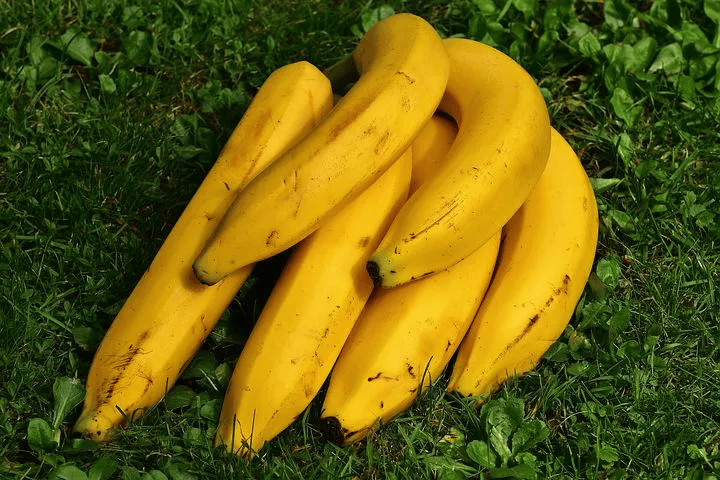Entering the midsummer season, the body sweats more, leading to the loss of electrolytes in the body, especially potassium, excessive loss of which may cause hypokalemia.
Hypokalemia can affect muscles, the heart, and even breathing. In severe cases, it can induce arrhythmia and cause cardiac arrest.
Symptoms of potassium deficiency in the body:
1. Muscle weakness, especially in the lower limbs, which is an early sign;
2. Decreased heat tolerance;
3. Palpitations, discomfort in the heart;
4. Muscle cramps;
5. Loss of appetite, nausea, poor appetite, and so on.
Three reasons for potassium deficiency in summer:
Increased sweating: Normally, only about 3% of potassium is excreted through sweat, but with excessive sweating, the amount of potassium excretion significantly increases.
Susceptibility to diarrhea: High summer temperatures may lead people to experience diarrhea or vomiting due to unclean or stale food, causing significant dehydration in the body, leading to electrolyte imbalances and a subsequent loss of potassium.
Lack of appetite: Many people lose their appetite in hot weather, coupled with the body’s higher energy consumption, leading to excessive potassium excretion without adequate supplementation. These reasons make potassium deficiency more common in summer.
Seven types of people who need potassium supplements:
Compared to the general population, some individuals need to be particularly mindful of potassium supplementation.
1. Hypertensive patients;
2. Those seeking weight loss;
3. Individuals with frequent diarrhea;
4. Sweaters;
5. Diabetics;
6. Individuals with osteoporosis;
7. Heart failure patients.
Six foods for potassium supplementation:
Bananas
Bananas are rich in potassium, with about 256 milligrams of potassium per 100 grams of bananas.
In traditional Chinese medicine, bananas are considered cool and sweet, with the ability to clear heat, moisten the intestines, and promote gastrointestinal motility.
Additionally, the magnesium in bananas helps relax muscles, relieve fatigue, and keep individuals in a good mental state during hot weather.
Longan
In traditional Chinese medicine, longan is believed to nourish blood, calm the mind, enhance brain function, and nourish the heart and spleen.
Longan has a suppression rate of over 90% on endometrial cancer cells. Women in menopause are susceptible to gynecological tumors, and consuming longan appropriately can be beneficial for their health. Longan has nourishing properties and can assist in the recovery and maintenance of those who are weak post-illness.
Potatoes
Potatoes are classified as foods high in potassium and low in sodium.
In traditional Chinese medicine, potatoes are considered neutral in nature, sweet in taste, and have the functions of invigorating the spleen and stomach, replenishing qi, regulating the middle, and relieving urgency and pain.
Consuming potatoes during the hottest days not only supplements potassium but also invigorates the spleen, stimulates appetite, and enhances digestive function.
Spinach
Spinach has a high potassium content, with about 560 milligrams of potassium per 100 grams of spinach.
According to traditional Chinese medicine theory, spinach has a cold nature, sweet taste, and the ability to nourish yin, regulate the liver, stop coughing, and moisten the intestines.
During hot weather, when people may be irritable and suffer from liver heat, consuming spinach in moderation can help suppress liver heat and maintain a peaceful mood.
Legumes
Legumes are good sources of potassium. Peanuts are also potassium-rich nuts, containing 947 milligrams of potassium per 100 grams of peanuts.
Various types of legumes have their own strengths. By rotating the consumption of legumes during the hottest days, one can supplement nutrients, enhance physical fitness, and greatly benefit the body.
In addition, dried longan, dried jujube, chestnuts, hazelnuts, lotus seeds, cashews, sunflower seeds, watermelon seeds, raisins, pine nuts, sesame seeds, and pistachios all are rich in potassium.
Nori
As a seaweed, nori is a true potassium-rich food.
From the perspective of traditional Chinese medicine, nori has the effects of resolving phlegm, softening hardness, clearing heat, promoting diuresis, nourishing the kidneys, and cultivating the heart.
During the hottest days, consuming nori soup or nori-wrapped rice can supplement potassium and calm the mind, clear heat and dampness, help eliminate internal dampness, and reduce the impact of summer heat on the body.


